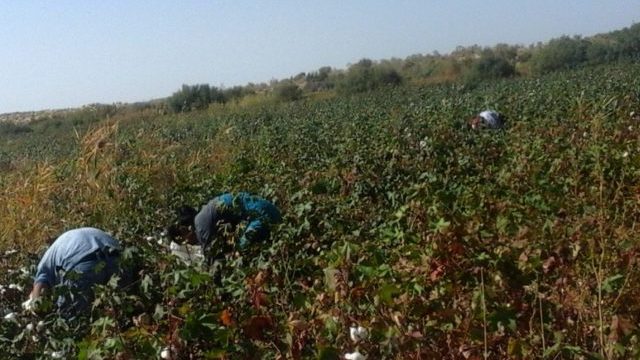There have been recent reports from the Turkmen regions of Mary and Lebap, saying that officials have begun to call civil servants for the cotton season. It started with calling school staff, janitors, and guards. Later, teachers will be summoned. The picking season began August 15. The roll call began with middle school support staff, janitors, and guards, while teachers will probably be called later.
“Their participation will be discussed at the upcoming teachers’ meetings ahead of September 1st. Similarly to previous years, the authorities forced people to gather at 6 a.m. in specified areas. They were then put on buses and dropped off at the fields. This operation went ahead under the control of school principals and local education authorities, while the police, both in uniform and in plain clothes, were monitoring the process.”
A source from the Mary area explained, “When they took us, we were 37, from different schools and kindergartens. They sent us to the Vekilbazar district. Nothing changed from the past years: we carried special clothing, aprons and a packed lunch. Our salary is maintained during the harvest. The only difference with previous years was the fee they gave us for the collection. We now receive 40 tenge [about 11 US cents at the official rate, or about 5 cents at the market rate] per kilogram of cotton collected. Last year it was half that. We used to buy cooking oil for 7 manats per liter, now we need 15 or more. Basic food prices all increased, from sugar to cereal, to canned food.”
According to ATN, there is still a little cotton in the fields. The harvest last year started near the end of August in the south and September in the north.
“The widespread use of forced labor for cotton harvesting has led several global brands to stop buying cotton and textiles from Turkmenistan. H&M and Inditex, the conglomerate that owns Zara, Bershka, Pull & Bear and others, were among these companies.”







Freedom United is interested in hearing from our community and welcomes relevant, informed comments, advice, and insights that advance the conversation around our campaigns and advocacy. We value inclusivity and respect within our community. To be approved, your comments should be civil.